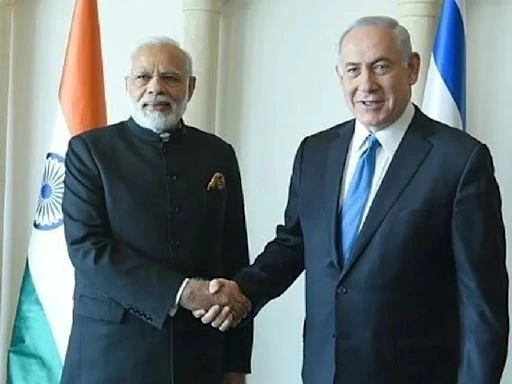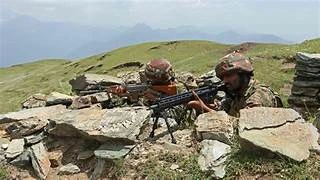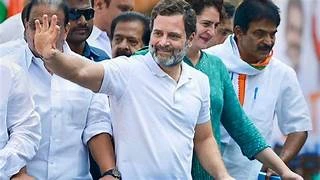25-JUN-2025, 04:30PM
In a bold political statement, Union Home Minister Amit Shah condemned the Emergency imposed in India on June 25, 1975, calling it an “era of injustice.” To mark the anniversary of what many consider a dark chapter in Indian democracy, the Modi Government has designated the day as ‘Samvidhan Hatya Diwas’ (Constitution Killing Day). The move is seen as both a reminder of the past and a critique of the Congress party’s governance during that time.
This renewed emphasis on the Emergency period has sparked conversations nationwide, with political leaders, historians, and citizens reflecting on the 21-month-long suspension of civil liberties under the rule of then Prime Minister Indira Gandhi.
Amit Shah on Emergency: A Stern Reminder of Constitutional Breach
Amit Shah Calls Emergency a Betrayal of Democracy
Speaking on the occasion of June 25, Amit Shah took to social media and addressed the media to reiterate that the Emergency period (1975–1977) was not only a political misstep but a blatant betrayal of the Indian Constitution. Shah referred to the decision as a calculated move to silence opposition voices and suppress democratic rights, including freedom of the press and judicial independence.
“The Emergency imposed by the Congress government in 1975 was the darkest period in India’s democratic history. It was a direct assault on the Constitution and the rights of citizens,” Amit Shah stated.
He further claimed that the present government, under Prime Minister Narendra Modi, is committed to upholding democratic values and ensuring that such an incident is never repeated.
Amit Shah : ‘Samvidhan Hatya Diwas’: Honoring the Spirit of Democracy
Amit Shah : Why June 25 Has Been Chosen as a Memorial Day
The decision to observe June 25 as ‘Samvidhan Hatya Diwas’ comes from the ruling BJP’s long-standing criticism of the Emergency era. It aims to educate younger generations about the implications of the Emergency and the necessity of preserving democratic institutions.
Amit Shah, along with other BJP leaders, has emphasized that remembering this day is not merely about political rivalry but about reminding the nation of its duty to protect constitutional values.
Banners, digital campaigns, and social media posts flooded public discourse, especially among BJP supporters, with phrases like “Never Again” and “Emergency – A Black Spot on Democracy.”
Reactions from Opposition: Congress Hits Back
Congress Terms It a Political Stunt
As expected, the Congress party has criticized the BJP-led government’s move, accusing it of weaponizing history for political gain. Senior Congress leaders stated that while the Emergency was indeed a difficult period, it was acknowledged by the party itself years ago.
Reacting to Amit Shah’s remarks, Congress General Secretary Jairam Ramesh said:
“We don’t need a lesson in democracy from those who themselves undermine institutions and constitutional bodies. This is clearly an attempt to divert attention from rising unemployment, inflation, and social unrest.”
This war of words reignited the ideological clash between the two major parties over the interpretation of historical events and their place in present-day governance.
Amit Shah: “India Will Never Forget Those 21 Months”
A Call for Political and Civil Awareness
In his address, Amit Shah urged educational institutions, civil society organizations, and media platforms to promote awareness of the Emergency period. According to Shah, the lack of public memory and documentation about that era is a dangerous oversight.
“We owe it to the youth of this country to tell them how our Constitution was subverted. It is not enough to read about freedom struggles — we must also teach about the struggles to preserve that freedom post-independence,” he added.
Shah credited citizens and political leaders, including Jayaprakash Narayan, Atal Bihari Vajpayee, and L.K. Advani, for their resistance and sacrifice during the Emergency.
Historical Context: What Happened During the Emergency
A Quick Recap of India’s Constitutional Crisis
The Emergency was declared by then Prime Minister Indira Gandhi on June 25, 1975, citing internal disturbances. It lasted until March 21, 1977, and was marked by:
-
Suspension of civil liberties
-
Arrests of opposition leaders
-
Censorship of the press
-
Forced sterilization drives
-
Delays in general elections
The move was widely condemned both domestically and internationally. After lifting the Emergency, the Congress faced a massive electoral defeat in 1977.
Amit Shah and other BJP leaders argue that the lessons of this period must serve as a safeguard against authoritarianism.
Modi Government’s Broader Narrative on Democratic Integrity
Positioning BJP as a Guardian of the Constitution
The designation of June 25 as ‘Samvidhan Hatya Diwas’ fits into the Modi government’s broader campaign to position itself as the protector of the Constitution. Over the years, the BJP has emphasized electoral reforms, digital governance, and anti-corruption drives as evidence of its democratic commitment.
Amit Shah’s comments underline this vision, contrasting today’s governance style with what the BJP terms “Congress-era autocracy.”
Civil Society and Scholars Weigh In
A Call for Non-Partisan Historical Reflection
Academics and historians have largely welcomed the increased attention to the Emergency but caution against politicizing historical memory. They stress that while Amit Shah’s concerns about democratic erosion during the Emergency are valid, all political parties must introspect about present-day challenges to civil liberties and judicial independence.
Social organizations, including legal advocacy groups, held seminars and webinars to reflect on the balance between national security and individual rights, using the Emergency as a case study.
Conclusion: Amit Shah Sparks a Necessary Debate
By labeling the Emergency as an “era of injustice” and championing June 25 as ‘Samvidhan Hatya Diwas’, Amit Shah has not only reignited historical debate but also highlighted the importance of constant vigilance in a democratic society. The statement may be politically charged, but it serves as a timely reminder that democracy is not a one-time achievement — it is a continuous commitment.
As India moves ahead in the 21st century, engaging with its past — even the uncomfortable chapters — is essential for building a resilient democratic future.
Source : ANI





